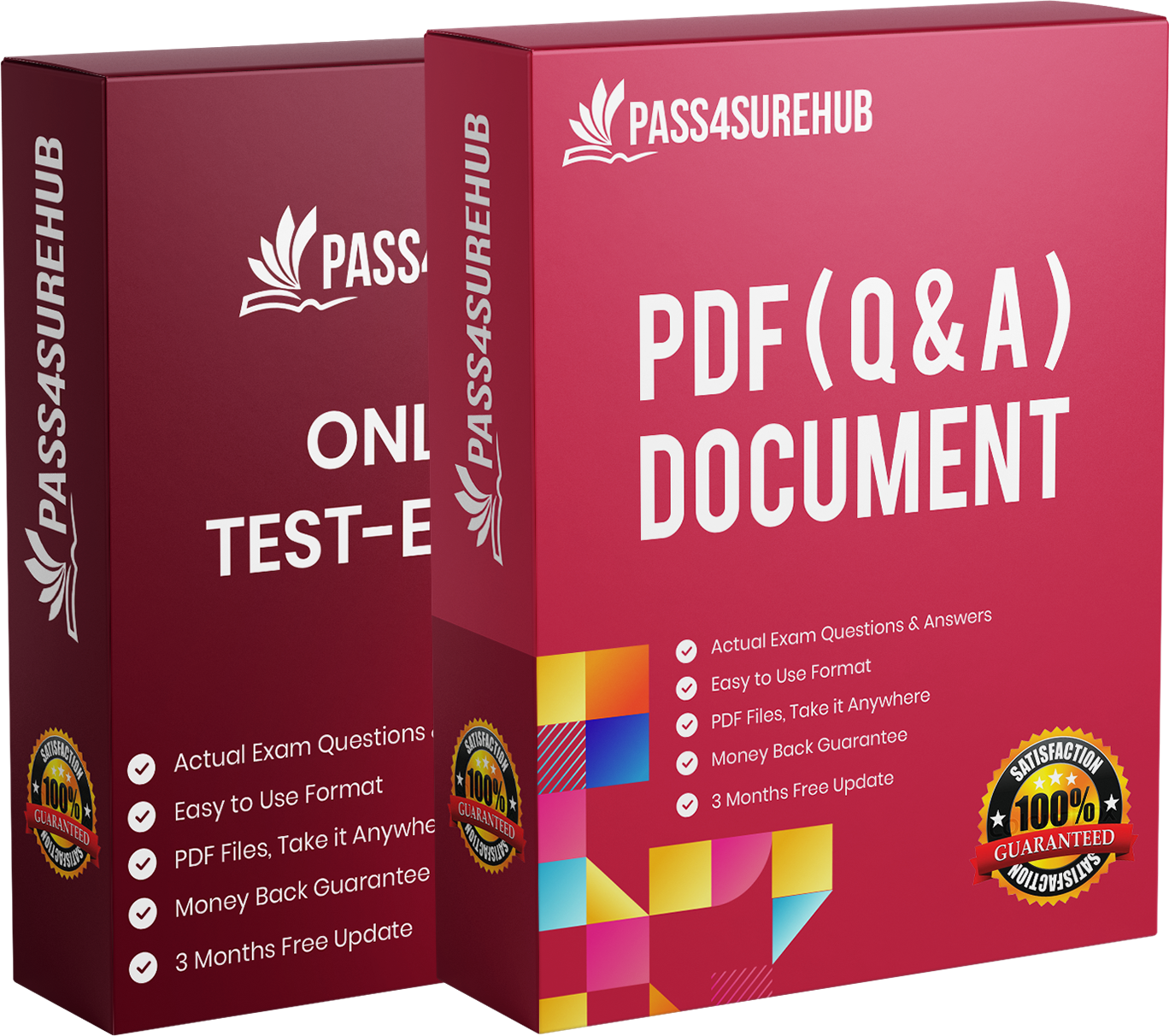
ACFE CFE-FINANCIAL-TRANSACTIONS-AND-FRAUD-SCHEMES Exam Dumps
Certified Fraud Examiner - Financial Transactions and Fraud Schemes Exam
Last Week CFE-FINANCIAL-TRANSACTIONS-AND-FRAUD-SCHEMES Exam Results
Customers Passed ACFE CFE-FINANCIAL-TRANSACTIONS-AND-FRAUD-SCHEMES Exam
Average Score In Real CFE-FINANCIAL-TRANSACTIONS-AND-FRAUD-SCHEMES Exam
Questions came from our CFE-FINANCIAL-TRANSACTIONS-AND-FRAUD-SCHEMES dumps.
Real ACFE CFE-FINANCIAL-TRANSACTIONS-AND-FRAUD-SCHEMES Dumps With 100% Passing Guarantee
Congratulations on taking the first step towards achieving the prestigious CFE-FINANCIAL-TRANSACTIONS-AND-FRAUD-SCHEMES certification! At Pass4SureHub, we are committed to helping you excel in your career by providing top-notch dumps for the CFE-FINANCIAL-TRANSACTIONS-AND-FRAUD-SCHEMES exam. With our comprehensive and well-crafted resources, we offer you a 100% passing guarantee, ensuring your success in the certification journey.
Why Choose Pass4SureHub for CFE-FINANCIAL-TRANSACTIONS-AND-FRAUD-SCHEMES Exam Preparation?
Expertly Curated Study Guides: Our study guides are meticulously crafted by experts who possess a deep understanding of the CFE-FINANCIAL-TRANSACTIONS-AND-FRAUD-SCHEMES exam objectives. These CFE-FINANCIAL-TRANSACTIONS-AND-FRAUD-SCHEMES dumps cover all the essential topics.
ACFE CFE-FINANCIAL-TRANSACTIONS-AND-FRAUD-SCHEMES Online Test Engine
Practice makes perfect, and our online CFE-FINANCIAL-TRANSACTIONS-AND-FRAUD-SCHEMES practice mode are designed to replicate the actual test environment. With timed sessions, you'll experience the pressure of the real exam and become more confident in managing your time during the test and you can assess your knowledge and identify areas for improvement.
ACFE CFE-FINANCIAL-TRANSACTIONS-AND-FRAUD-SCHEMES Detailed Explanations for Answers
Understanding your mistakes is crucial for improvement. Our practice CFE-FINANCIAL-TRANSACTIONS-AND-FRAUD-SCHEMES questions answers come with detailed explanations for each question, helping you comprehend the correct approach and learn from any errors.
Dedicated Support of CFE-FINANCIAL-TRANSACTIONS-AND-FRAUD-SCHEMES Exam
Our support team is here to assist you every step of the way. If you have any queries or need guidance, regarding CFE-FINANCIAL-TRANSACTIONS-AND-FRAUD-SCHEMES Exam Question Answers then feel free to reach out to us. We are dedicated to your success and are committed to providing prompt and helpful responses.
Join the Community of Successful Professionals of ACFE CFE-FINANCIAL-TRANSACTIONS-AND-FRAUD-SCHEMES Exam
Pass4SureHub takes pride in the countless success stories of individuals who have achieved their ACFE CFE-FINANCIAL-TRANSACTIONS-AND-FRAUD-SCHEMES certification with our real exam dumps. You can be a part of this community of accomplished professionals who have unlocked new career opportunities and gained recognition in the IT industry.
Your Success is Guaranteed
With Pass4SureHub's CFE-FINANCIAL-TRANSACTIONS-AND-FRAUD-SCHEMES exam study material and 100% passing guarantee, you can approach the certification exam with confidence and assurance. We are confident that our comprehensive resources, combined with your dedication and hard work, will lead you to success.
ACFE CFE-FINANCIAL-TRANSACTIONS-AND-FRAUD-SCHEMES Sample Question Answers
ACFE CFE-FINANCIAL-TRANSACTIONS-AND-FRAUD-SCHEMES Sample Questions
Question # 1Which of the following is true for Red flags associated with fictitious revenues?
A. Slow growth or usual profitability, when not compared to other companies in the sameindustry.
B. Usual growth in the number of days purchase in receivables
C. A significant volume of sales to entries whose substance and ownership is not known.
D. A usual surge in purchase by a majority of units within a company, or of purchaserecorded by corporate headquarters.
Question # 2
Which of the following is the amount of money that would be realized upon the sale of theasset at some point in the future, less the costs associated with owing, operating andselling it?
A. Net realizable value
B. Going concern
C. Cost
D. Fair value
Question # 3
Accounting records are designed to be kept on subjective rather than objective evidence.
A. True
B. False
Question # 4
Accounting records are designed to be kept on subjective rather than objective evidence.
A. True
B. False
Question # 5
What can make it easy for an employee to skim sales or receivables?
A. Revenue sources and recording procedures
B. Poor collection and recording procedures
C. Internal audits and recording procedures
D. Register manipulations and recording procedures
Question # 6
The heart of book keeping system is the ___________.
A. Asset
B. Liability
C. Checkbook
D. Journal
Question # 7
Forced reconciliation of the account says:
A. to conceal shrinkage is to alter inventory record so that it matches the physical inventorycount.
B. to conceal inventory is to alter shrinkage record so that it matches the physical inventorycount.
C. to conceal shrinkage is to change the perpetual inventory record so that it matches thephysical inventory count.
D. to conceal write-offs is to change the perpetual inventory record so that it matches thephysical inventory count.
Question # 8
__________ is required if and when officers, executives or other persons in trustedpositions become subjects of a criminal indictment.
A. Conflict of interest
B. Turnaround sale or flip
C. Disclosure
D. Resource diversion
Question # 9
Which sale occurs when the accomplice of the employee-fraudster “buys” merchandise, but the employee does not ring up the sale, and the accomplice takes the merchandise withoutmaking any payment?
A. Whole sale
B. Fake sale
C. Fraudster sale
D. Preliminary sale
Question # 10
Which of the following is the criterion for bid solicitation?
A. Containing false statements
B. Allowing the purchaser to discuss possible employment with the contractor
C. To withdraw low bids
D. To falsify the bid log
Question # 11
In which approach, fraudsters produce whatever financial statements they wish, perhapsusing just a typewriter or a personal computer.
A. Organized accounting
B. Playing the accounting
C. Beating accounting
D. Outside accounting system
Question # 12
Which of the following is NOT standard of generally accepted accounting principles?
A. Conservatism
B. Cost
C. Full disclosure
D. Quality control
Question # 13
Which of the following are not of Basic types of non-sharable problems?
A. Violation of ascribed obligations
B. Business reversals
C. Physical Isolation
D. Larceny by Fraud
Question # 14
The most common method of detection in corruption cases is:
A. Internal audits
B. Internal controls
C. Tips
D. By accident
Question # 15
Financial statement fraud is committed by:
A. Organized criminals
B. Mid and lower level employees
C. Senior Management
D. All of the above




